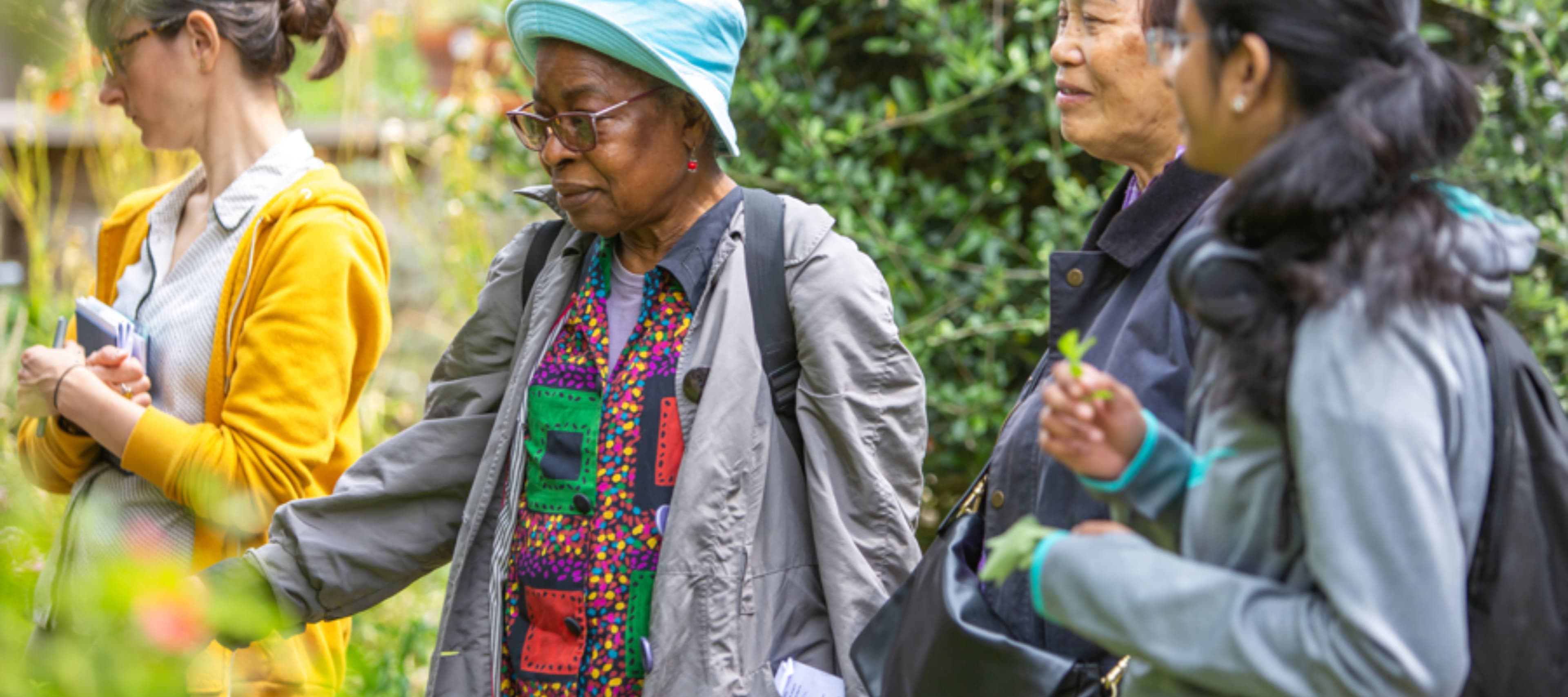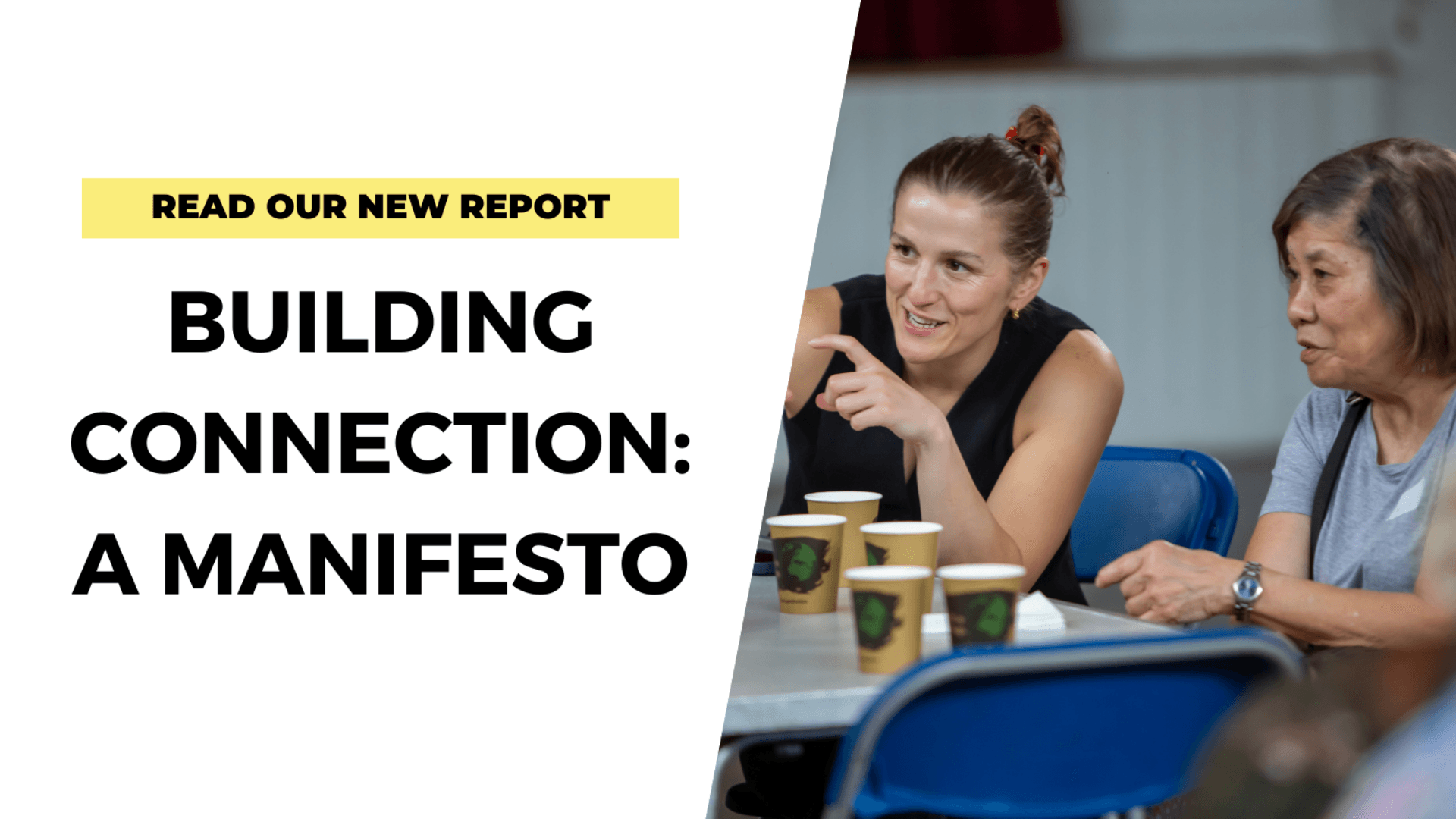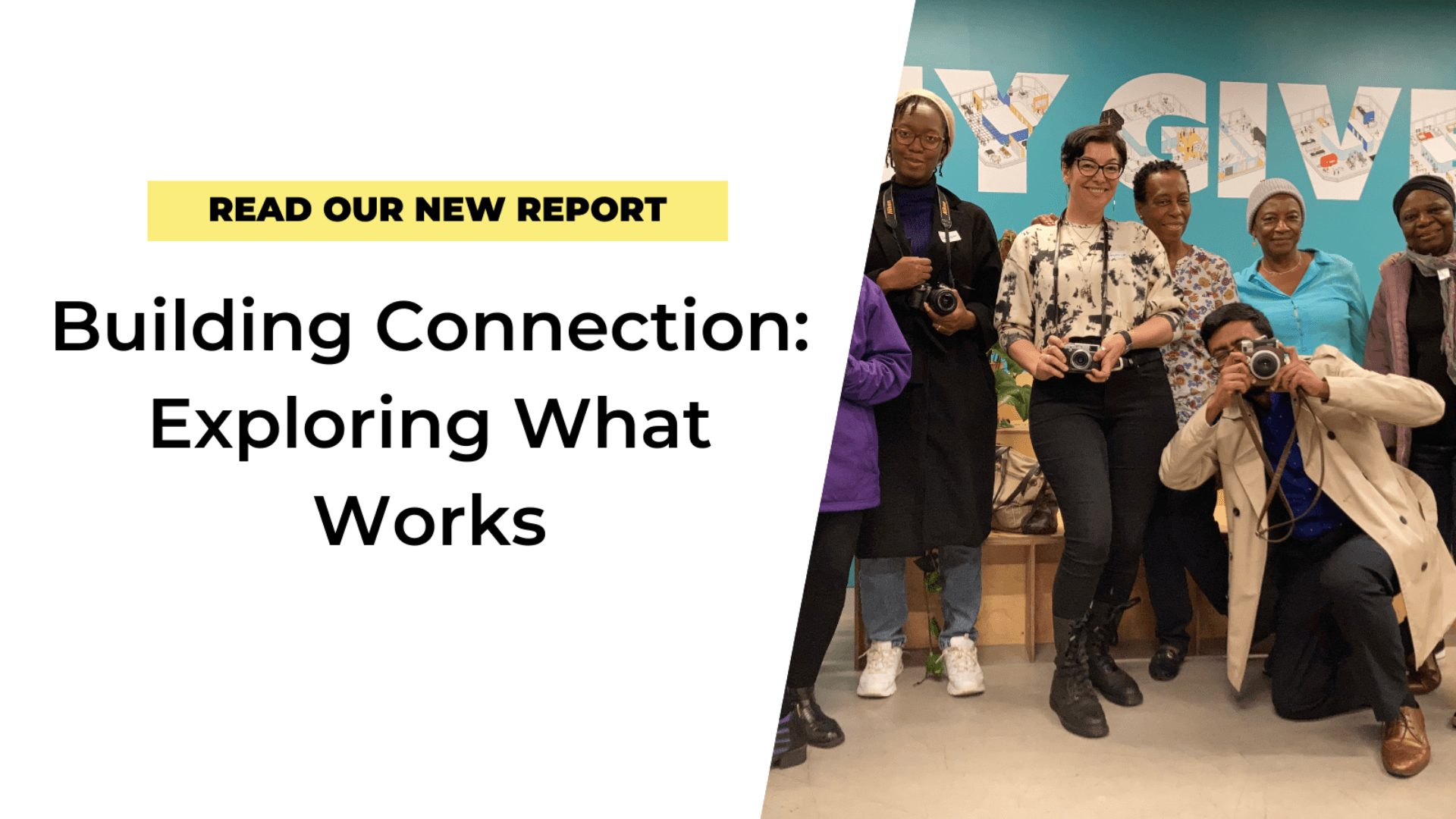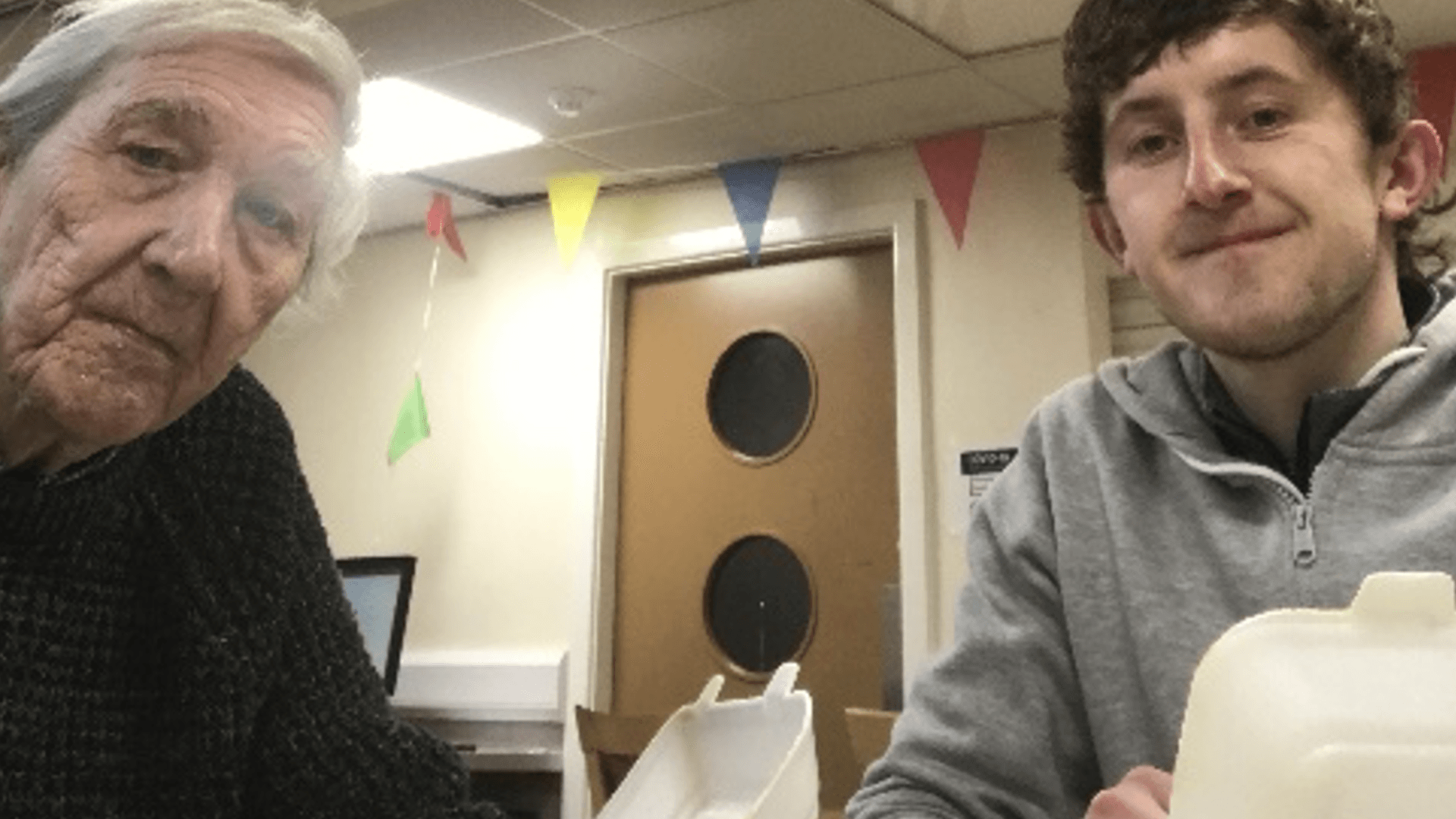
Why more powerful communities are more connected communities
Posted by The Cares Family on 4th September 2023
Please note: this post is 28 months old and The Cares Family is no longer operational. This post is shared for information only
With Parliament returning from its summer recess, attention has re-focused on the main political parties, as next year’s General Election gets ever closer. October’s party conferences will be a key moment as the party leaders set out their stall and paint a vision of a better Britain.
At The Cares Family, we painted our own vision of a more socially connected nation in our manifesto, published in July. This included five big ideas for building connection, and helping people feel more united and less lonely. At the heart of our proposals was the idea that more powerful communities are more connected communities.
What is community power?
The We’re Right Here campaign that The Cares Family is helping to lead defines community power as giving local people the power they need to shape the places where they live. Bringing people together to exercise power in this way in and of itself strengthens social connection but, more importantly, the deep social bonds created mean people are better able to set up spaces, buildings, programmes and projects which build stronger social ties in the long run.
But the right conditions need to be in place for community power to flourish. People need to have the belief and confidence that they are taken seriously in the places where they live. Genuine power and decision making needs to be devolved to communities and long-term, meaningful investment needs to be made to create sustainable and lasting change. Crucial, too, is having welcoming and inclusive spaces for people to come together, and a bedrock of social connections between people from different generations and backgrounds to create higher levels of trust.
Social connection, then, creates better possibilities for community power. And community power, in turn, brings people together and strengthens social connection. A virtuous cycle is at work.
Our manifesto asks on community power
Two of our manifesto’s recommendations focus specifically on creating these conditions, highlighting community power as a key component of social connection. The first is the proposal for a Centre for Social Connection, which would invest in community leaders/changemakers who are connecting people in their local areas through sharing best practice, new evidence and research, and by helping them navigate funding routes.
The Centre would provide invaluable support to leaders such as those taking part in The Cares Family’s Multiplier programme, through which community change-makers creating stronger communities are given the tools to inspire others to forge social connections and leverage community power. It would also greatly benefit the local organisations we are working with to adopt The Cares Family model through Ripple Effect, as well as our own local branches bringing people together across generations and backgrounds in Manchester, Liverpool and London.
The second manifesto recommendation was the landmark proposal for a Community Power Act. This transformative legislation would enshrine new rights for local communities over local spaces, services, and spending decisions, create power-sharing deals between local councils and community groups, and establish a new Community Power Commissioner to ensure local communities enjoy their full rights once the Act is passed.
Bringing in a Community Power Act is something The Cares Family has been leading the charge for as part of the We’re Right Here campaign, which brings community leaders from across the country together with national organisations including the Joseph Rowntree Foundation, The Young Foundation, Power to Change, and Locality. It’s a campaign that has really taken off in the last year, with a big launch in Parliament, and politicians taking serious note.
The Labour Party has committed to introducing a Community Right to Buy if it wins power, giving local people the chance to take control of pubs, historic buildings, football clubs and other sites that come up for sale or fall into disrepair. The recent closure of the historic Crooked House pub near Dudley following a fire is a great example of a space that could benefit so much from a Community Right to Buy.
The benefits of community power
The Cares Family has decided to take a leading role in the We’re Right Here campaign because we see community power as absolutely essential to social connection.
There is strong evidence to show the link between the two. A review published in June by New Local, examining 27 different studies, found that social relations and connectivity were the top two wellbeing outcomes that flowed from community power. The review said “involving communities as equal partners in the design of place-based interventions creates opportunities for residents to come together. These opportunities increase social connectedness, resulting in improved pride and sense of place.”
A brilliant illustration of the importance of community power for social connection comes from Rachel Pedley who set up Avant Cymru in Wales, who is part of our Multiplier programme this year. In an old, disused building on the Wrexham high street, she has created Hip Hop Cymru Wales, a hip-hop space that brings together musicians, dancers, poets, and people of all ages to connect and be creative. Local people come along to tell their stories through these expressive means, building a stronger sense of place and attachment to the local community. Rachel’s initiative is part of a wider effort by the shopping centre in Wrexham to partner with community groups so that empty buildings can opened up to local people. It shows that when communities are given control, the benefits for social connection can be huge.
Why we need action now
Unfortunately, many people feel they don’t have the power to make meaningful change in their communities. 71% of UK adults feel they have ‘no’ or ‘not much’ control over important decisions affecting their neighbourhoods, while 63% believe the government’s Levelling Up agenda should involve giving local people more power over those decisions.
These trends are exactly why we’re asking for a Centre for Social Connection and a Community Power Act, so that success stories like Rachel’s become commonplace.
While community power and social connection are great things in their own right, they are crucial for so many more reasons. Crucial because social disconnection constitutes a public health crisis, making strokes, heart attacks and depression far more likely. Crucial because social disconnection undermines trust in democracy. And crucial because social connection is estimated to cost the UK economy £32bn a year.
As Parliament returns from recess, we hope politicians from both sides of the House will listen to these calls, and seize the opportunity for change.




